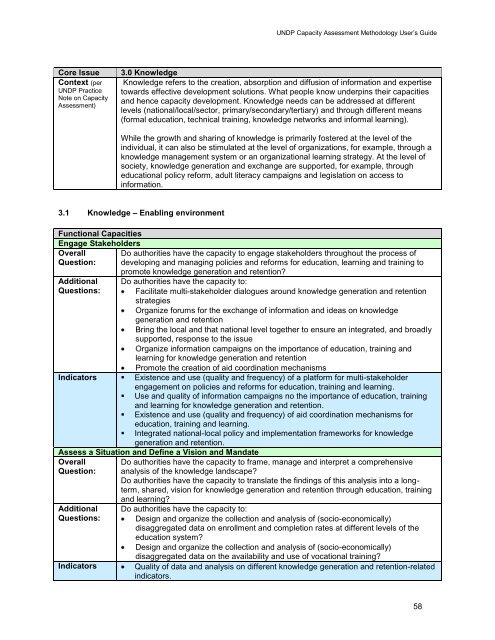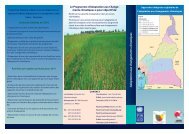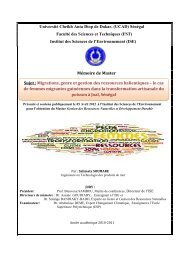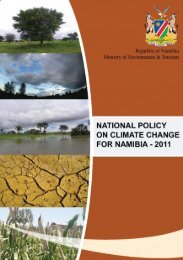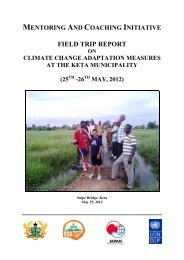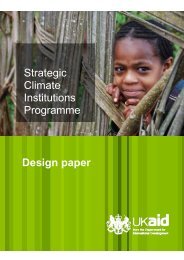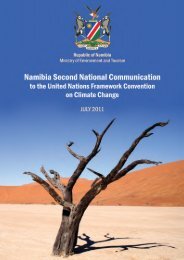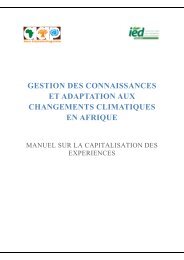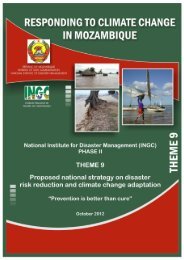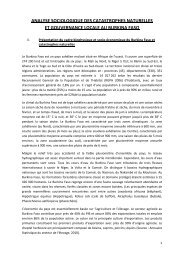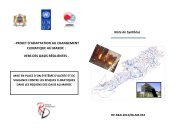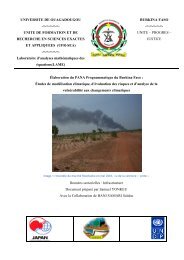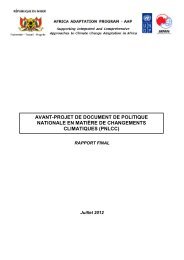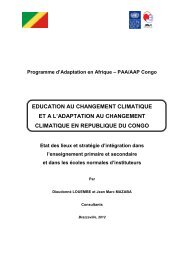UNDP Capacity Assessment Users Guide.pdf - Africa Adaptation ...
UNDP Capacity Assessment Users Guide.pdf - Africa Adaptation ...
UNDP Capacity Assessment Users Guide.pdf - Africa Adaptation ...
You also want an ePaper? Increase the reach of your titles
YUMPU automatically turns print PDFs into web optimized ePapers that Google loves.
<strong>UNDP</strong> <strong>Capacity</strong> <strong>Assessment</strong> Methodology User‘s <strong>Guide</strong>Core IssueContext (per<strong>UNDP</strong> PracticeNote on <strong>Capacity</strong><strong>Assessment</strong>)3.0 KnowledgeKnowledge refers to the creation, absorption and diffusion of information and expertisetowards effective development solutions. What people know underpins their capacitiesand hence capacity development. Knowledge needs can be addressed at differentlevels (national/local/sector, primary/secondary/tertiary) and through different means(formal education, technical training, knowledge networks and informal learning).While the growth and sharing of knowledge is primarily fostered at the level of theindividual, it can also be stimulated at the level of organizations, for example, through aknowledge management system or an organizational learning strategy. At the level ofsociety, knowledge generation and exchange are supported, for example, througheducational policy reform, adult literacy campaigns and legislation on access toinformation.3.1 Knowledge – Enabling environmentFunctional CapacitiesEngage StakeholdersOverall Do authorities have the capacity to engage stakeholders throughout the process ofQuestion: developing and managing policies and reforms for education, learning and training toAdditionalQuestions:promote knowledge generation and retention?Do authorities have the capacity to:Facilitate multi-stakeholder dialogues around knowledge generation and retentionstrategiesOrganize forums for the exchange of information and ideas on knowledgegeneration and retentionBring the local and that national level together to ensure an integrated, and broadlysupported, response to the issueOrganize information campaigns on the importance of education, training andlearning for knowledge generation and retentionPromote the creation of aid coordination mechanismsIndicators • Existence and use (quality and frequency) of a platform for multi-stakeholderengagement on policies and reforms for education, training and learning.• Use and quality of information campaigns no the importance of education, trainingand learning for knowledge generation and retention.• Existence and use (quality and frequency) of aid coordination mechanisms foreducation, training and learning.• Integrated national-local policy and implementation frameworks for knowledgegeneration and retention.Assess a Situation and Define a Vision and MandateOverallQuestion:AdditionalQuestions:IndicatorsDo authorities have the capacity to frame, manage and interpret a comprehensiveanalysis of the knowledge landscape?Do authorities have the capacity to translate the findings of this analysis into a longterm,shared, vision for knowledge generation and retention through education, trainingand learning?Do authorities have the capacity to:Design and organize the collection and analysis of (socio-economically)disaggregated data on enrollment and completion rates at different levels of theeducation system?Design and organize the collection and analysis of (socio-economically)disaggregated data on the availability and use of vocational training?Quality of data and analysis on different knowledge generation and retention-relatedindicators.58


